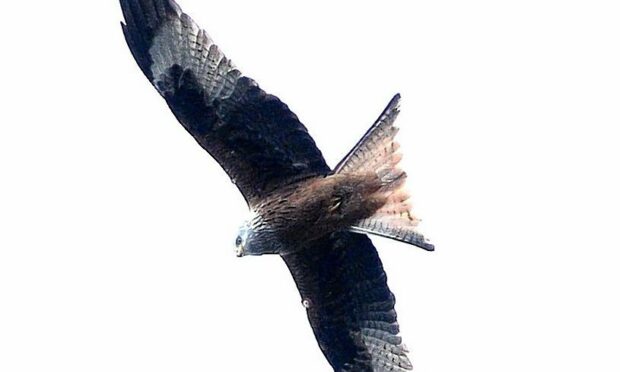The mass poisoning of birds of prey in the Black Isle “brought shame on the Highlands” according to a local MSP.
Kate Forbes spoke out after police confirmed on Thursday their investigation into the deaths of 12 red kites and four buzzards in 2014 was over.
The birds were poisoned with a toxic combination of carbofuran, aldicarb and carbosulfan, all of which are banned in the UK.
Police believe they were the unintentional victims of attempted pest control using illegal baits.
Ms Forbes is a member of Holyrood’s environment committee, which took evidence on raptor persecution last week.
She said: “The deaths of 12 red kites and four buzzards in my constituency remains one of the most disgraceful examples of birds of prey being illegally killed.
“Whether the birds were killed intentionally or unintentionally is irrelevant – the bait was illegally poisoned and the consequences, inexcusable.
“While I recognise concerns about the investigation, it is clearly disappointing for everybody that the case remains unsolved.
“Nevertheless, I thank all parties for the part they played in offering evidence.
“I hope there will never be a repeat of this offence, which brought shame on the Highlands.”
The police investigation has been brought to a close because three years has now passed without a prosecution being brought.
The wide-ranging investigation was led by CID officers and included input from the National Farmers Union , Royal Society for the Protection of Birds and the Scottish Society for the Prevention of Cruelty to Animals (Scottish SPCA).
Several specialist police units were also deployed at various times, including a dog trained to sniff out illegal pesticides.
A spokesman for the Scottish SPCA’s special investigations unit said: “The Scottish SPCA are committed to reduce wildlife crime. In this case we provided specialist assistance to our partners Police Scotland.
“The use of poison is indiscriminate, causes suffering to animals and we are committed to reduce and eliminate this illegal practice.
“We have consistently shown that the society has the expertise and resources to assist in the reduction of wildlife crime.”
Chief Superintendent Philip MacRae said the outcome was “very disappointing” and blamed a lack of evidence from preventing the force from taking the case to a prosecution.
